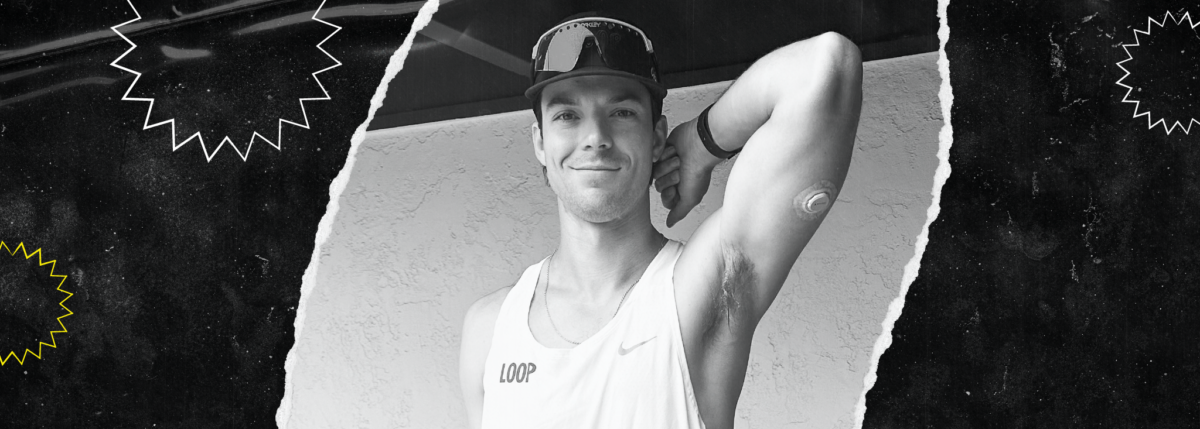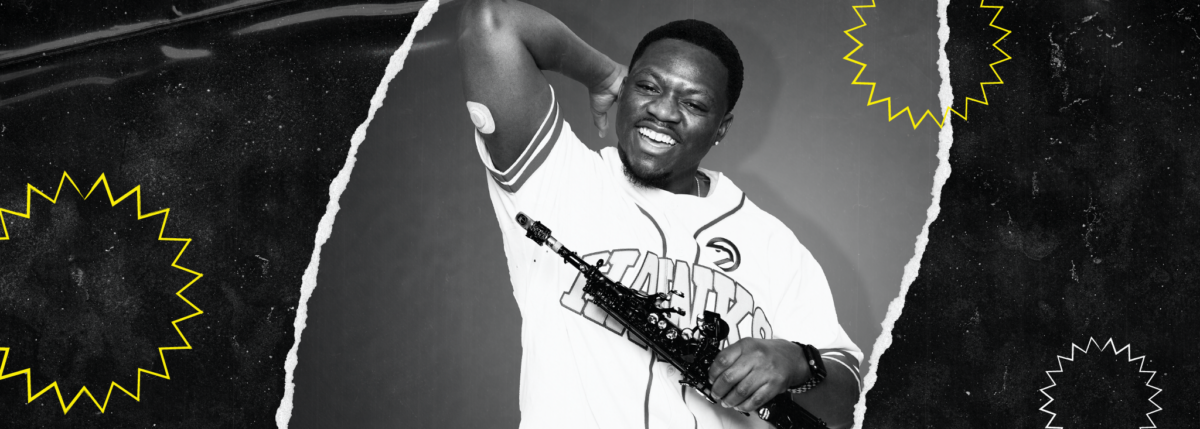My Brother Died from DKA
Written by: Katie Lesley
7 minute read
February 5, 2018
We prayed with every fiber of our being for a miracle to happen. But now we were surrounding his bed, clasping hands, with his pastor reciting the final prayers.
Editor’s Note: For support navigating life after a type 1 death, please visit Jesse Was Here, a unique program of Beyond Type 1, providing resources to spouses, siblings, grandparents and friends in need.
I believe that generally, there is still a lot of confusion about type 1 diabetes. There are many common misunderstandings, like it was caused by a bad habit (we ate too much sugar), or is an automatic diagnosis if a grandmother had some form of diabetes, often pronounced “diabeetus.” My own grandma actually called it “sugar-betes,” which definitely made my eyes roll, hard. Another commonly used word in type 1 diabetes (T1D) conversation is the word “just.” Couldn’t you just do this …,” “why can’t you just …” and “at least diabetes is just …”
Now let’s talk about diabetic ketoacidosis (DKA). I have actually noticed when I use the term DKA, people don’t have say much because they know nothing about it. Diabetic ketoacidosis is a severe, life-threatening complication, mostly affecting type 1 diabetics. DKA can develop when your blood sugar is high and the insulin level is low. The imbalance in the body causes a build-up of ketones, which are toxic. If not treated, it can lead to a diabetic coma and death.
I was diagnosed at 8 years old with type 1 diabetes. Fortunately, my mom was familiar with the symptoms and I was hospitalized with a blood sugar of around 27.8 mmol/L500 mg/dl. I had literally just moved to a new town, new house and was about to go to a new school. Now I had a new disease to tackle. Although my family was very supportive, we took the approach of “don’t act like anything is wrong” so that I didn’t feel isolated by T1D.
This eventually resulted in me treating my disease too casually. I certainly demanded independence right away; I wanted to inject myself, not call for help with every low blood sugar, and resisted extra help with the high blood sugars. I was quite defensive when anyone asked what my blood sugars were, as I felt like I was failing if I wasn’t in perfect range. This created a roller coaster regarding the control of my health, which I could probably write a novel about, but that will come later.
One vivid memory for me is a night I was vomiting in my bedroom (about 12 years old), too weak to even get out of bed, and my older brother Nick was just staring at me with panic, but silent. My mom forced me to the ER and I was in DKA; I got the IV fluids, and the shame from the ER doctor that scolded me about every future complication I could develop if I did not take my disease seriously. The harsh reality of this disease was clear, yet became more of a silencer for me than anything.
Later in my college years, and I believe I racked up about three hospitalizations from DKA. Reflecting on those years now, I am horrified that I didn’t communicate a more specific “emergency plan” with anyone in charge. I luckily made some pretty awesome friends that were beyond supportive of me, but I even lived in my own apartment for a few years (with independent woman goals) and didn’t let site manager know I had T1D. Anyone with knowledge or experience of DKA knows I’m lucky I’m alive to even write this story.
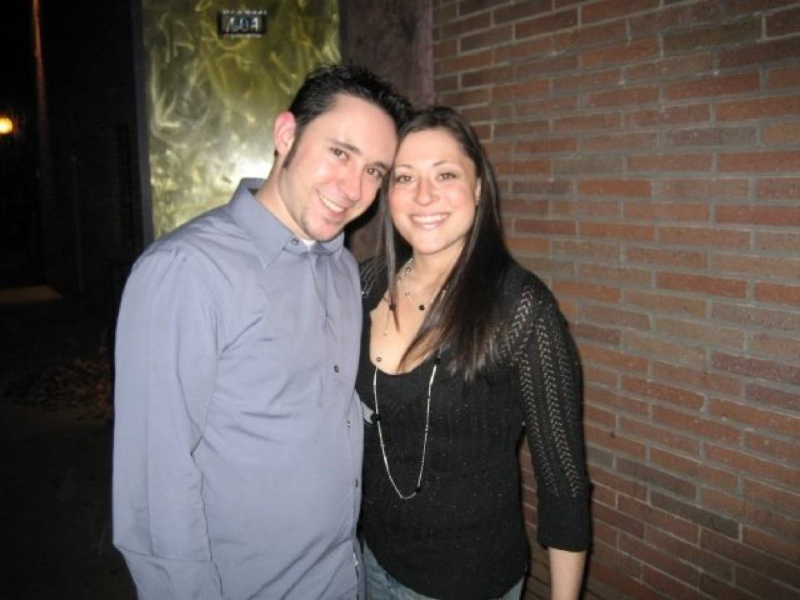
My older (by about 2.5 years) brother Nick would ask my mom why the DKA was so serious, and why I’d be in the hospital for so long, and isn’t it “just” like a flu. Even though I shared an extraordinary relationship with my brother, my T1D wasn’t talked about much growing up. I was defensive, shameful and sometimes just stubborn. So I didn’t share all the details, at least not until he was diagnosed with T1D at the age of 22.
I can tell you exactly where I was sitting and the weather for the day and the model of cell phone I had, when Nick called me and said, “I cannot believe what you have been going through all these years. My little sister has just been a badass since you were little and I’m over here complaining about a test strip.” I laughed out loud, swelled with pride and emotion, deflated with relief, and we talked for an hour about all the complaints the disease presents.
My brother was the first person I whole-heartedly opened up to about my disease that had any idea what I was talking about, and related to the daily struggles like nobody else. I felt guilty for having a sense of relief, because of course I didn’t want him to have the disease, but I had 11 years of T1D conversation to be had. We often joked about his honeymoon phase because he had to take very little insulin and sort of had that unicorn status for awhile, but I also felt sorrow because I knew too well how complicated the disease gets. We soon had the reoccurring conversation of how insanely unfair the prices of supplies were, and made a habit of calling each other after every visit to the pharmacy to compare our bills. Nick had moved to Minnesota, started a new career, and didn’t have medical insurance. His bill beat mine every time, and it made me sick.
While struggling with the control of my T1D in my twenties, I was lucky enough to find the man of my dreams. I was forced to talk about my disease with him when he opened a drawer of probably a hundred syringes I hadn’t deposited into a sharps container yet. Imagine his surprise! He actually took a devoted interest in the details, and offered more support and encouragement than I even knew possible. A few years later, we were engaged to be married at a magazine-worthy winery in California, and my life felt better than ever. Nick had recently called me after trying on his tux with his young son and ring bearer, and that call seemed to make everything very real for the wedding.
Nick’s family would be flying out and staying for a week, and I just couldn’t have been more excited to celebrate this marriage with everyone. On a Sunday evening in February, my best friend and I were assembling my wedding invitations when Nick called to check in, as he often did. He sounded tired and briefly mentioned he hadn’t felt good for a few days. Distracted by my wedding, I quickly told him to take care of himself, I told him I loved him and would call him soon.
A short few days later, I received a call at work from his girlfriend (and mother of their children) saying Nick was in the hospital in a coma. Paralyzed with disbelief and panic, I tried to wrap my head around the situation. I don’t remember every detail of the conversation as all I could think about was the coma; but eventually figured out that Nick had a severe stomach flu for a few days, became extremely dehydrated and suffered a heart attack.
The paramedics revived him on the floor of his home, and at the hospital the doctors would be performing a cooling method to reduce brain swelling and he should be waking up in the next few days. Did I mention my parents were out of town in a “hard to reach” area with little reception? That night as I lay restless in bed, I was figuring out how to get to the hospital in Minnesota before he woke up so I could give him one hell of a hard time for being so dramatic over a flu. I imagined his infectious smile, and the embrace we would share.
The next morning, I actually went to work in slight denial. I thought I’d get some stuff done and let my work family know what was going on and why I’d be flying to Minnesota soon. I wasn’t at work for more than 10 minutes when I got the call from Nick’s girlfriend telling me the doctors had misinterpreted his condition, and the dreaded phrase “there is nothing they can do.” He would be on life support until family arrived. I fell hard to my knees and a scream escaped me that only tragedy can create.
My parents, fiancé and I made the impossibly long flight to Minnesota from California, with an unexpected and gut wrenching flight delay. We finally made it to the hospital, and the first time I saw Nick, he actually looked healthy. Other than the expected medical devices hooked up, he didn’t even look in really bad shape. That night, I held his hand tight for as long as I can remember, begging him to wake up, I swear a trillion times.
The doctors explained that he had lost too much oxygen to his brain from his heart attack, and was completely brain dead. Per our wishes, they could conduct another test in the morning to check for any brain activity. We prayed with every fiber of our beings for a miracle. The test offered no miracle, and now we were surrounding his bed interlocking hands, with his pastor reciting final prayers. Nick passed away on February 27, 2009. I have haunting memories of the final steps out of the hospital, down a cold, dark hallway, with too many doors that slammed closed behind us, leaving Nick behind, and my mom and I held each other up one step at a time. When the doors opened to outside, the frigid cold of a Minnesota winter slapped me in the face and the deep breath I took was physically hard to swallow as my tears painfully stung my eyes. I thought it should be impossible for the sun to shine in the darkness of death.
The cause of death was determined DKA. The doctors and nurses expressed their surprise by Nick’s outcome considering how healthy he was. They had “never seen anything quite like this.” We were able to donate his organs, even his heart. I like to think the heart recipient gained Nick’s sense of humor, strong soul, love of a loud bass line, incredible dance moves and the charisma that defined his spirit.
Two funerals later (in Minnesota and California), more details emerged of the sequence of tragic events. Basically, Nick thought he had the stomach flu, as he did a few weeks prior and fought it off. However, this turned severe quickly. He was throwing up often, had unstable blood sugars from insulin resistance, and had asked to be taken to the hospital moments before suffering his heart attack.
He didn’t have medical insurance, and there was hesitation in getting him to a doctor or the hospital because of it.
The thought that no insurance, or more specifically, money, wasted precious time, or even worried my brother and his family for the time he was suffering, sickens me. I also struggle with the thought that this death was likely preventable. I suffered and survived from DKA countless times in my 26 years with T1D. I can’t help to think “if he got to a hospital sooner, he’d still be here,” because I’m here to write this DKA story. Did he even know the severity of dehydration and DKA? I should’ve told him a million more times. If medical help was sought sooner, would he not have developed DKA, had a heart attack and died? I’d like to say yes, but we will never know.
What we do know is that the severity of DKA is deadly. We know that anyone with T1D needs to be prepared for an emergency, and loved ones, family, friends, teachers, co-workers, doctors, nurses and strangers need to be able to recognize signs and symptoms of DKA. We know we must be advocates for better education around DKA. We know not to take this disease lightly. We know that too many lives have been taken from DKA. And most importantly to me, I know I will spend the rest of my life keeping Nick’s spirit alive for his two sweet children and I will advocate for DKA Awareness. I will fight my personal health battle with positivity, as this profound loss proves how sacred life is. In our often hectic, fast paced lives, take a moment to consider the countless ways you can provide support to someone. Whether it means educating yourself on what to do in case of an emergency or simply listening to a friend’s concerns, it may prevent a tragedy like this one.
For anyone dealing with the loss of a loved one with T1D, please check out our resources and the supportive Jesse Was Here social community.

Author
Katie Lesley
Katie has had type 1 diabetes since she was 8 years old. She is a proud wife and mother, living with her family in Lodi, California. She is an advocate for spreading awareness about diabetic ketoacidosis (DKA) in management and is currently a “quality of life” clinical trial at Stanford for Medtronic's artificial pancreas.
Related Resources
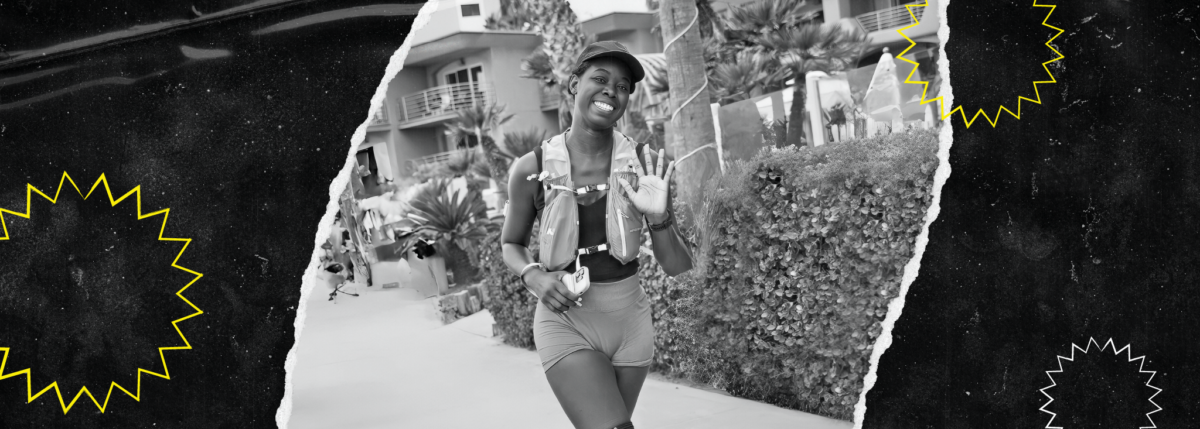
Danica Collins not only prepared for one of the most challenging physical events of her...
Read more
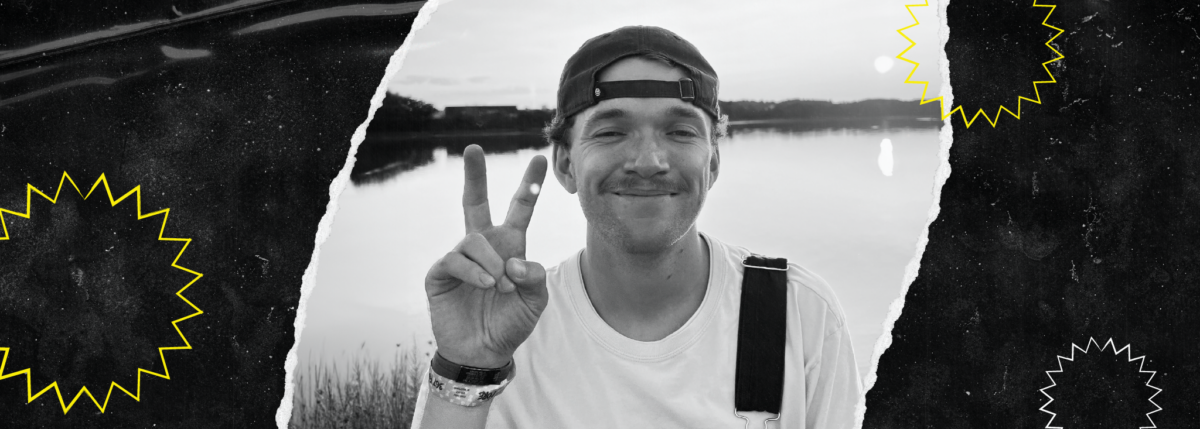
Beyond Type 1 is spotlighting inspiring athletes with type 1 diabetes as they prepare for...
Read more
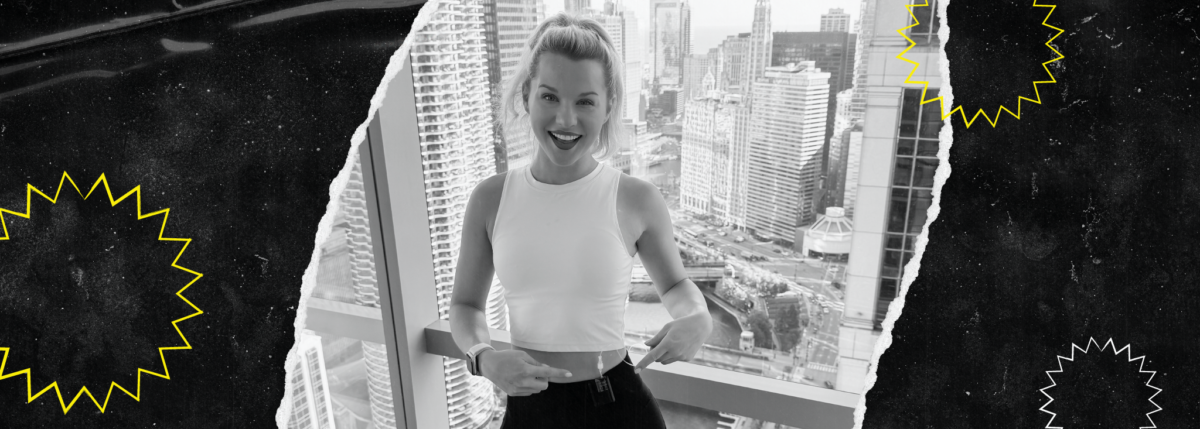
On November 3, 2024, Taylor Rindfleisch of Chicago laced up her running shoes for the...
Read more
